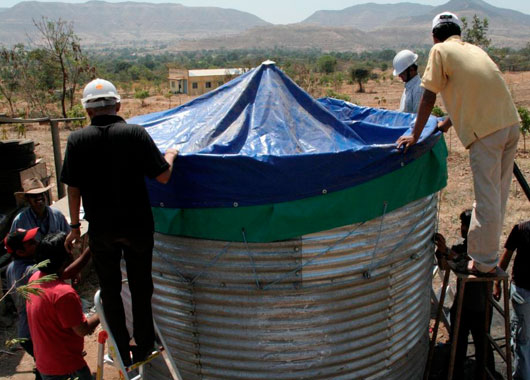
Engineering in Emergencies
The course on Engineering in emergencies is specifically designed for Public health engineers working on field locations. The course provides detailed knowledge and skills with reference to WASH components. The learning process of seven days for Engineering in Emergencies unfolds in five sections. The first part provides detailed overview of humanitarian emergencies, the need for an engineering response in WASH with reference to environmental health. The second part of the course covers Water supply including specific topics like Water Quantity and Distance, Water source development, Water distribution Systems, Handpump maintenance, Water treatment and water quality monitoring. This part of the training also provides practical experience to the participants. The third part of the course covers Emergency Sanitation including Excreta disposal, Solid Waste Management, Wastewater Management and Vector control. This part of the course is facilitated using demonstrations and practical exercises for each topic. The fourth part of the course deals with the discussions on WASH NFIs, Hygiene promotion, Sphere standards, emergency needs assessment, humanitarian coordination and an overview of shelter and settlement. The last part of the learning process is facilitated using an intensive simulation where all the participants get opportunity to practice their learning with reference to WASH in emergencies. The course is facilitated by experienced emergency professionals including Shelter and WASH experts, using mixed methods of interactive power point presentations, group work, and scenario based exercises and demonstration.

